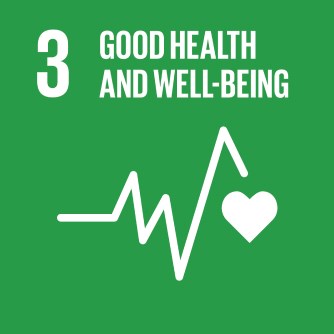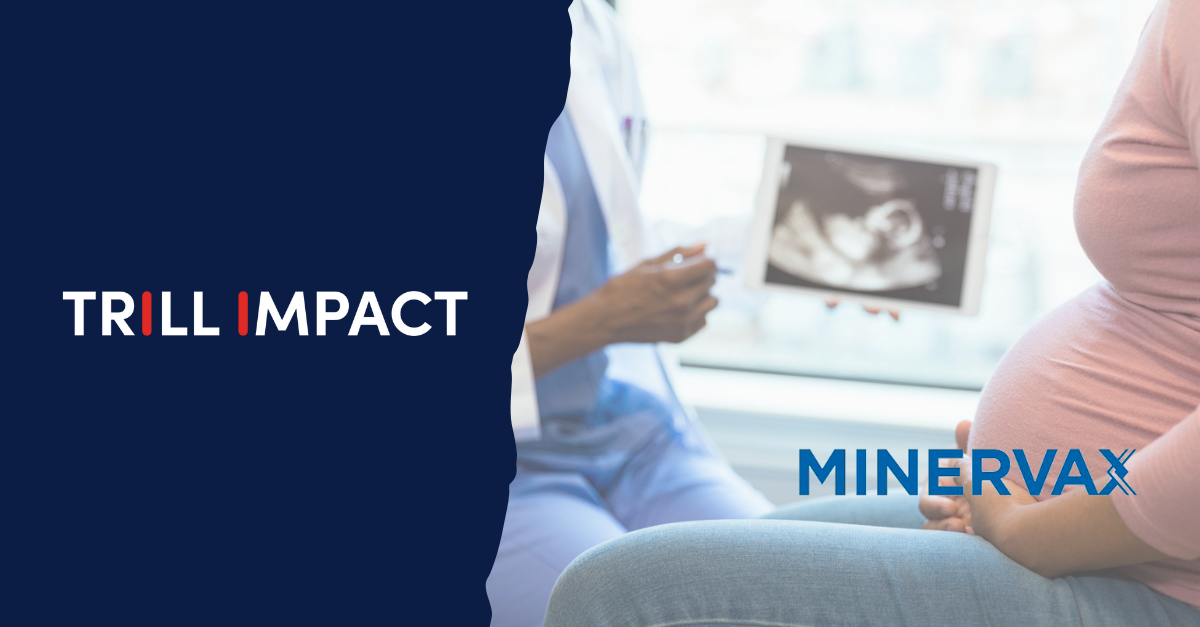
Trill Impact Ventures co-leads the EUR 22M financing round in MinervaX

Trill Impact Ventures, Trill Impact’s new venture capital strategy, announces that it together with Pureos Bioventures has co-led the EUR 22M financing round in MinervaX, a Danish late-stage biotechnology company developing a novel vaccine against Group B Streptococcus (GBS). The round also saw participation from existing investors: Novo Holdings, Sanofi Ventures, Wellington Partners, Adjuvant Capital, Sunstone Capital, Industrifonden and LF Investment. In addition, a EUR 50M loan agreement from the European Investment Bank has been signed increasing the financing round to EUR 72M. Proceeds will advance the clinical development of MinervaX’s novel vaccine, as well as manufacturing and regulatory preparation for Phase III.
GBS bacteria is the leading cause of life-threatening bacterial infection in newborns. MinervaX's maternal vaccine has the potential to protect the infant from the significant risk of severe morbidity, long-term disability, or death and protect the mother from complications during pregnancy. In addition, if successful this vaccine offers a viable alternative to antibiotics, thereby furthering the battle against antimicrobial resistance.
Concurrent with the financing, Bita Sehat, Senior Investment Director at Trill Impact Ventures and Veronica Gambillara, Partner at Pureos Bioventures will join MinervaX’s board of directors.
Commenting on the transaction, Bita Sehat said,
“MinervaX’s GBS vaccine holds great promise to address a large unmet medical need globally by preventing serious infections in newborns and in pregnant women. Its successful development will not only save lives, it will also contribute to combatting antimicrobial resistance. We are happy to join forces with a strong shareholder base and an excellent management team to support turning this promise into reality. We view MinervaX as a great example of societal and commercial impact going hand in hand.”
Per Fischer, the CEO of MinervaX, said,
“We are delighted to announce this financing, which gives us the firepower to accelerate development of our vaccine. There is a pressing need for a vaccine for GBS, which can be life-threatening for unborn and newborn babies with no approved or universally useful vaccine available to date.”
Group B Streptococcus (GBS): GBS is accountable for almost 50% of all life-threatening infections in newborns. At any given time, 15-25% of women are colonized with GBS, and they run the risk of transmitting the bacteria to their child in the womb, during birth and/or during the first months of life. GBS colonization may lead to late abortions, premature delivery, or stillbirth and, in the newborn child, may result in sepsis, pneumonia or meningitis. Currently, the only preventative strategy available involves the use of intravenously delivered antibiotics at the time of delivery. Such treatment does not comprehensively prevent GBS infection and has limited or no availability in resource limited settings such as in low- and middle-income countries. Annually, GBS infection is estimated to be responsible for >90,000 cases of infant deaths, >50,000 cases of stillbirth, >10,000 cases of disabilities in children, and >3 million preterm deliveries globally. Increased uptake of immunization among pregnant women and greater awareness of the implications of GBS suggest that a safe and effective GBS vaccine would be well suited to address this unmet need in an underserved patient population.
Antimicrobial resistance: In 2019, >1 million people died as a direct result of bacterial resistance to existing antibiotics. The Review on Antimicrobial Resistance, commissioned by the UK Government, estimated that if the situation is left unmanaged, by 2050, as many as 10 million people could die each year as a result of antimicrobial resistance – more than all cancers combined. That will translate to global increases in healthcare costs by $300 billion-$1 trillion per year by 2050. Misuse and overuse of antibiotics is one of the main drivers of antimicrobial resistance.
SDG and Impact contribution
MinervaX has the potential to prevent thousands of adverse pregnancy outcomes and life-threatening infection in newborns, as well as contributing to combatting antimicrobial resistance. MinervaX has the potential to make a direct contribution to SDG 3. – reduce the global maternal mortality ratio to less than 70 per 100,000 live births, SDG 3.2 – end preventable deaths of newborns and children under 5 years of age, to <12 per 1,000 live births and under‑5 mortality to <25 per 1,000 live births, and SDG 3.b – support R&D of medicines affecting developing countries; provide access to affordable essential medicines

Related information
Trill Impact is a pioneering Impact House with EUR 1.2 billion in assets under management across its investment strategies. With a team of more than 35 experienced professionals based in Sweden, Germany, Luxemburg and Denmark, Trill Impact aims to become a force for positive change and realize its vision of delivering real returns and lasting impact for the benefit of investors, businesses, and society at large.
MinervaX is a Danish biotechnology company, established in 2010 to develop a prophylactic vaccine against Group B Streptococcus (GBS), based on research from Lund University. MinervaX is developing a GBS vaccine for maternal immunization, likely to have superior characteristics compared with other GBS vaccine candidates in development. The latter are based on traditional capsular polysaccharide (CPS) conjugate technology. By contrast, MinervaX’s vaccine is a protein-only vaccine based on fusions of highly immunogenic and protective protein domains from selected surface proteins of GBS (the Alpha-like protein family). Given the broad distribution of proteins contained in the vaccine on GBS strains globally, it is expected that MinervaX’s vaccine will confer protection against virtually 100% of all GBS isolates

